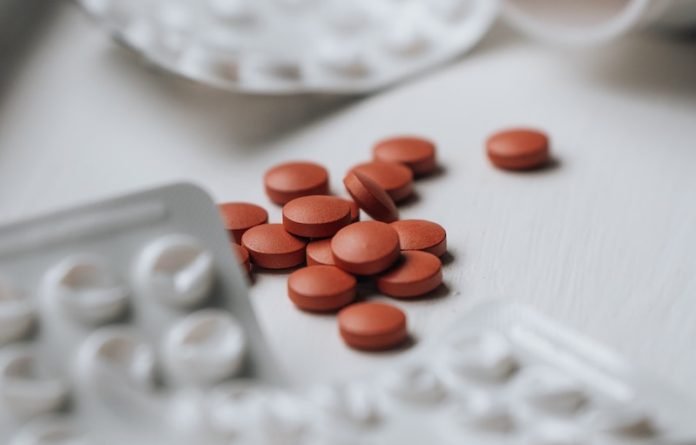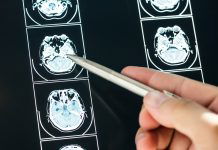
Scientists at Weill Cornell Medicine have discovered changes in gene activity that occur in small blood vessels in the brain following a stroke.
The team found that hundreds of genes had significant changes and could be investigated as potential targets for future stroke treatments.
The study, which was published in the Proceedings of the National Academy of Sciences, found that some molecules weaken the blood-brain barrier while others protect it.
The blood-brain barrier is a cellular lining of cerebral microvessels that protects the brain by keeping most components of circulating blood out of it.
The team also identified disruptions in genes that control the levels of sphingolipids, which are molecules involved in regulating blood vessels.
Stroke is a leading cause of mortality and long-term disability worldwide. Most strokes are ischemic strokes, which involve a blood clot in a vessel serving the brain.
The blockage or severe reduction of blood flow reduces oxygen and nutrient delivery to downstream brain cells, killing or injuring them and triggering inflammatory processes that can cause further damage.
The small cerebral blood vessels—or “cerebral microvasculature”—downstream of the blockage are also affected, and the changes in them are thought to contribute further to brain damage post-stroke.
Yet these microvascular changes have been technically challenging to record accurately, and thus have not been as well studied as other aspects of stroke—nor do they have any specific treatment.
The scientists at Weill Cornell Medicine used optimized methods to study stroke-affected vessels to surmount these challenges.
They comprehensively recorded post-stroke changes in gene activity in the cerebral microvasculature in mice and identified the changes that have also been seen in studies of human stroke patients.
They identified 541 genes whose activity was altered similarly in both mice and human cerebral microvessels post-stroke.
The team discovered that some types of sphingolipids are highly enriched in cerebral blood vessels compared with brain tissue, and that alterations in these sphingolipids in the cerebral microvasculature can induce stroke, as well as changes in key molecules that control the levels of these lipids.
The scientists found that molecules that would weaken the blood-brain barrier were upregulated following stroke, while others that should protect it were downregulated.
The team is following up with preclinical experiments using candidate drugs or genetic methods to reverse some of the specific microvascular changes identified in their study to investigate if this could be beneficial for stroke patients.
This new research provides a knowledge base that improves our understanding of strokes and points to specific molecules and pathways that can be investigated as potential targets for future stroke treatments.
It could help researchers develop the first therapies targeting the microvasculature in stroke.
How to prevent stroke
There are several lifestyle changes you can make to reduce your risk of stroke:
Control high blood pressure: High blood pressure is a major risk factor for stroke. You can control high blood pressure by maintaining a healthy weight, exercising regularly, reducing your sodium intake, and avoiding smoking and excessive alcohol consumption.
Maintain a healthy diet: Eating a healthy diet that is low in saturated and trans fats and high in fruits, vegetables, whole grains, lean proteins, and healthy fats can help reduce your risk of stroke.
Exercise regularly: Regular exercise can help improve your overall health and reduce your risk of stroke. Aim for at least 30 minutes of moderate-intensity exercise most days of the week.
Quit smoking: Smoking is a significant risk factor for stroke. Quitting smoking can help lower your risk of stroke and improve your overall health.
Limit alcohol consumption: Excessive alcohol consumption can increase your risk of stroke. Limit your alcohol consumption to no more than one drink per day for women and two drinks per day for men.
Manage diabetes: Diabetes is a risk factor for stroke. Managing your blood sugar levels through a healthy diet, regular exercise, and medication can help reduce your risk of stroke.
Manage stress: Chronic stress can increase your risk of stroke. Practice stress management techniques such as meditation, yoga, or deep breathing exercises.
It is also important to talk to your healthcare provider about your risk of stroke and any lifestyle changes or medications that may be appropriate for you.
If you care about stroke, please read studies about a breakfast linked to better blood vessel health, and olive oil could help lower risks of heart disease and stroke.
For more information about health, please see recent studies about a big breakthrough in stroke treatment, and wild blueberries can benefit your heart and brain.
The study was conducted by Keri Callegari et al and published in the Proceedings of the National Academy of Sciences.
Copyright © 2023 Knowridge Science Report. All rights reserved.



